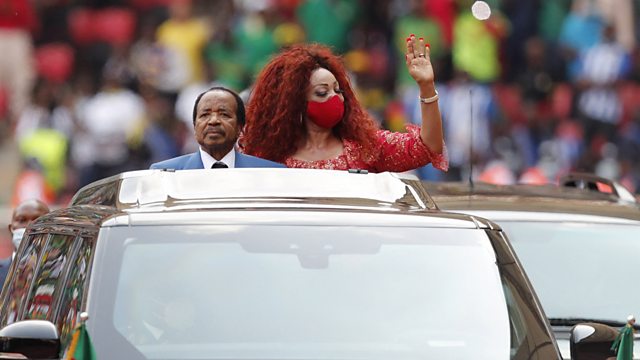Football, power and conflict in Cameroon
Cameroon hosts the Africa Cup of Nations as a secessionist insurgency simmers; the mood in Ukraine darkens; Montenegro's billion-euro road; home visits for prisoners in Brazil
Pascale Harter introduces reports from correspondents, reporters and writers around the world.
The Africa Cup of Nations football tournament is under way in Cameroon. But in stark contrast to the joy and pageantry on the pitch, outside the stadiums, there is still ongoing conflict in the English-speaking region in the west of the country. Many people there have long complained about the political and economic dominance of their French-speaking compatriots. James Copnall joined the teams and fans who travelled to Cameroon for the tournament – and it got him thinking about what football reveals about power and politics under long-time President Paul Biya.
Tensions between the governments of Ukraine and Russia have sharpened recently - and that's alarmed diplomats and governments around the world. Recently Moscow has sent its diplomats to meet representatives of NATO, and of the United States, in rounds of talks held in Brussels and Geneva. Russia’s great unease about what it sees as its ‘back yard’ drifting further towards Western influence is deeply rooted in its history. So how are Ukranians feeling about the balance of power now? Zeinab Badawi has been in Kiev and sent us her impression.
It’s been called the priciest piece of tarmac in Europe: a mere 43 kilometres of road in Montenegro which have cost around a billion Euros - most of it borrowed from a Chinese bank. Apart from the price tag, allegations of corruption, nepotism and environmental damage have also hung around the project. And, the road’s still not open, more than 2 years after it should’ve been finished. Nonetheless there are those who have high hopes that it will eventually boost the country’s prospects by linking neighbouring Serbia to a Montenegrin port. Linda Pressly meets some of the project’s supporters and detractors.
Life within the Brazilian prison system is notoriously tough. But there’s also a more forgiving side – and that includes giving some prisoners occasional home leave. The idea is to encourage them not to end up back in trouble after they’re released. Recently Andrew Downie got an unexpected glimpse of how it works.
Producer: Polly Hope
(Image: Cameroon’s President Paul Biya and first lady Chantal Biya arrive at the stadium in Yaounde on 09 January 2022 before a football match. Credit: Reuters/Mohamed Abd El Ghany)
Last on
Broadcasts
- Sat 15 Jan 2022 02:06GMT���˿��� World Service
- Sat 15 Jan 2022 16:06GMT���˿��� World Service News Internet
- Sun 16 Jan 2022 05:06GMT���˿��� World Service
- Sun 16 Jan 2022 09:06GMT���˿��� World Service
- Mon 17 Jan 2022 00:06GMT���˿��� World Service

